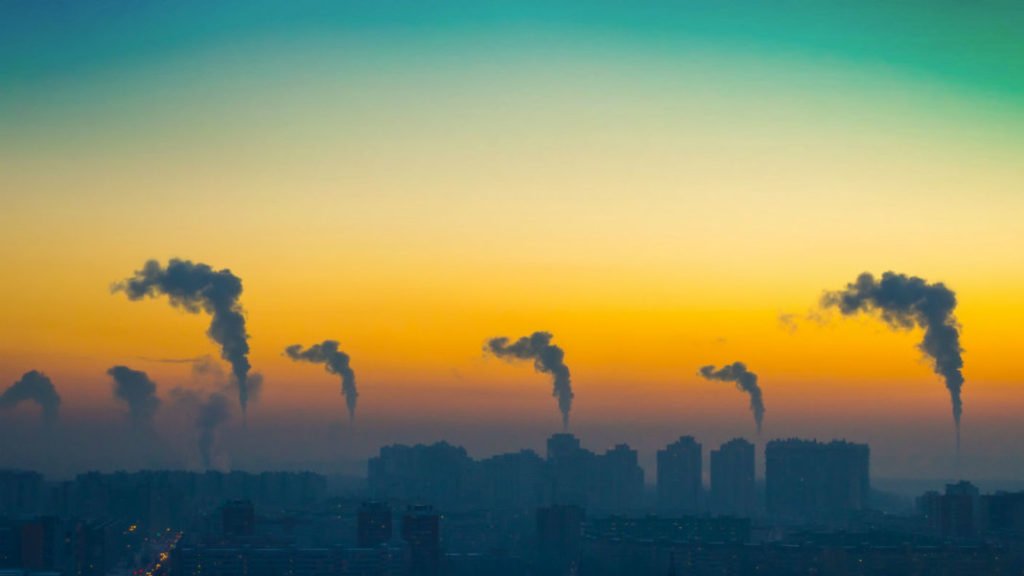When we think of the apocalypse, a couple of images come to mind. There are the grand displays of alien motherships, staffed with plunderers from another world invading our own. There are also vivid images of unruly natural disasters that wipe out the totality of humankind, ending all of human history in an instant.
But reality paints a different picture. Earlier this month, the United Nations’ scientific panel released a report on the effects of climate change. To call the findings “ominous” would be an understatement. The report — which was issued by the Intergovernmental Panel on Climate Change — forsees a future in which global temperatures rise 2.7 degrees Fahrenheit above preindustrial levels by 2040. The effects of such a rise would be dire; the report warns of mass famine, natural disasters and ecological decay. This report came as a shock to much of the scientific community, as most experts didn’t expect such extreme consequences until global temperatures rose 3.7 degrees Fahrenheit. If the findings are to be believed, we face an urgent, existential crisis as a planet.
In the future the IPCC report lays out, the end of civilization looks less like the movie “Independence Day” and more like “Children of Men.” There will be no mass invasion, nor will there be an unstoppable asteroid hurtling towards people’s homes and lives. Rather, we face a future in which the planet dies around us, eroding at the margins while we in the west — with our ill-gotten gains hanging by a thread — go on about our day, subsumed in debt, culture war and cynicism as if everything is normal. But things won’t be. The ecological disaster brought on by climate change will first affect the global south, rendering many places uninhabitable. This will necessitate mass migration to the already unwelcoming West, with all their nascent nationalist governments in ascendency, likely resulting in unspeakable acts of depravity by the powerful against the powerless — victims of a political-economic system unable to solve its contradictions, unwilling martyrs to a rotten cause. This is just one of many humanitarian disasters potentially on the horizon.
The IPCC report did, however, outline potential remedies. They spoke of a need to reduce greenhouse gas emissions by 45 percent by 2030, and completely by 2050; the European Union is already undertaking similar measures, with mediocre results. The report also mentioned — although briefly — that the prevention of ecological catastrophe requires a mass, rapid transformation of the global economy. It is in this admission that the solution to such problems reveals itself: A mass, political movement is needed to solve climate change.
You wouldn’t know this by observing the dominant narratives all around us. Shortly after the IPCC report, CNN, which embarrassingly bills itself as “the most trusted name in news,” tweeted out a list of things people can do to help solve climate change. In the tweet, CNN — which was aggregating some of the more surface-level suggestions in the report — called on individuals to “eat less meat” and “swap your car or plane ride for a bus or train.” Nowhere in either the tweet or accompanying article did they mention the more macro-efforts to solve the crisis, such as Spain’s negotiations to shut down all their coal mines, or the ambitious “green new deal” proposals by activist groups and insurgent democrats. More radical movements by ecosocialists are also largely ignored. After all, if the authors of the report are indeed serious about the need to “radically restructure” the global economy, starting with the upending of the dominant system in which we live would necessarily be considered.
Instead, CNN, along with numerous other publications, aims to individualize the problem, reducing a dire need for mass action to an issue of personal morality.
There seems to be a pattern with the way the media — and our broader culture— deals with systemic issues. Too often in our media landscape, outlets tend to “microtize the macro,” as the media analysts Adam Johnson and Nima Shirazi note on their podcast “Citations Needed.” It’s a mode of discourse that obfuscates the systemic implications of policy, diluting calls for politics in favor of personal, moral crusades — the kind that prioritizes a superficial sense of goodness over a need to reclaim power. It’s a symptom of a political culture so fatally obsessed with notions of individualism, so resigned to wilting neoliberal economic structures that it can’t help but be limited in its prescriptions for a better world. The problem has pervasive effects all throughout society, but with climate change, it might literally get us all killed.
While calls to recycle and consume less are, of course, laudable goals in themselves, they do not mean much when just 100 companies are responsible for 71 percent of greenhouse gas emissions. Such efforts in the face of this, as Matt Wilkins of The Scientific American notes, are foolhardy and naive.
“Recycling plastic is to saving the Earth what hammering a nail is to halting a skyscraper,” Wilkins said.
Despite the seemingly self-evident socio-economic implications of everyday struggles, like simply finding a place to recycle in the first place, the ideological taste-makers that shape our discourse seem to be intent on missing the point.
For example, if CNN wants people to more readily utilize mass transit, it might behoove them to examine the pitiful condition it currently lies in. American suburbs and smaller cities face a lack of mass transit that drastically hampers the working class’ (as well as the elderly and disabled) ability to move around. This is a macro issue, and CNN missed it completely in their lack of analysis.

Local news stations are among the biggest offenders of skirting systemic implications in favor of feel-good stories. Keeping with the mass-transit theme, a favorite among these outlets is to highlight a working class person — often of color — who braves environmental conditions in order to walk to their low-wage job, which sometimes takes hours. In these segments, there are no broader critiques of the inadequacy of mass transit, or comments on poverty and being dependent on the goodwill of others. Rather, they often end on a grim — although it’s meant to be uplifting — message of “this person made NO excuses.”
Now, let’s imagine an alternate universe in which no one made such excuses. Each and every day, thousands of low-wage Americans make their way down the streets of dilapidated suburbs and cities, walking passed the defunct bus stops that would’ve once taken them to their destination. Now imagine an alien, distant enough from our own world to not recognize the structures in which we live, but somehow equipped with an Enlightenment understanding of ethics and morality. Gliding along the sprawling mass of our country, examining our social conditions from the comfort of invisibility and flight, what would they think to see this? Would they be overjoyed at the exuberance of the human will? Or horrified at the austerity of a society so affluent, so seemingly gluttonous in its wealth but sparing in that wealth’s distribution? Which would it be?
Choose for yourself.
Individualizing systemic horrors doesn’t stop at mass transit, however. Lyft celebrated one of their drivers accepting a fare while in labor as a triumph of dedication. Lyft, of course, refuses to provide her adequate benefits, allow her union representation, or to even classify her as an employee, presumably shielding themselves from any responsibility should the driver have had any medical complications while driving her passenger. The macro is turned micro once again.
Amply funded GoFundMe campaigns for healthcare procedures, rent and college tuition are celebrated as testaments to the goodwill of strangers rather than an indictment of our inability to provide the most basic social services. Macro is turned to micro.
Systemic matters get subdued; the language of collective struggle gets cast aside in favor of moralizing anecdotes, the kind fit for a people fatally alienated from one another: These are the consequences of micro-tizing the macro. And it needs to stop.
Our reality is not fixed; it is subject to change as much as our moods, consumer habits, obsessions and ever-shortening attention spans are. A different world is well within our grasp — if we want it. We could have a world in which energy sectors are decommodified and brought under public control, no longer beholden to the whims of lobbyists and executives, as Jeremy Corbyn’s Labour Party has proposed. We could have a world in which essential services such as healthcare, housing and work are ripped from the grasp of landlords, bosses and corporate board members, reclaiming power not by asking for “handouts,” but through clenched fists, as a collective — a whole.
Any mass issue, be it climate change, healthcare, housing or poverty, has a potential remedy located in the realm of politics and mass action. After all, politics, as writer Chris Hooks has noted, is both more simple and serious than it seems: It is a question of who gets what; it is an index of suffering in society; it is the way we distribute pain. It is not a singular recycle bin, or a twee anecdote about a poor man walking 15 miles to work through the snow.
It’s about time we start acting like it.



Comments are closed.